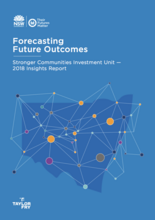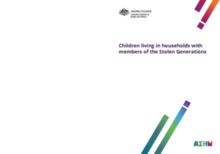Displaying 251 - 260 of 595
This open access article details a culturally informed approach by sharing the findings of a Cultural Healing Program (CHP) designed, developed and delivered by an Aboriginal Community Controlled Organisation. The program was for Aboriginal survivors of institutional child sexual abuse who had also experienced cultural abuse having been forcibly removed from their families as children and in the process disconnected from their communities, culture and land.
As foster and kinship carers are central to the lives of looked after children, it is important to recognise their unmet needs and the impact of these on the caring task. This article explores these issues by applying a hierarchy of needs to the foster and kinship care context, drawing on the perspectives of those involved, a group of Australian foster and kinship carers.
This editorial piece from the Sydney Morning Herald describes a new report released by the Government of New South Wales, Australia entitled 'Forecasting Future Outcomes,' which "gives a hard financial justification and a possible methodology for early intervention to protect certain vulnerable groups of young people before it is too late."
This report, which was authored by Taylor Fry with support from Their Futures Matter (TFM) - a landmark reform of the Government of New South Wales (NSW), Australia to deliver improved outcomes for vulnerable children, young people and their families - and stakeholder agencies, presents key results and insights from the TFM Investment Model, an actuarial model of future outcomes and costs of providing key government services to children and young people in NSW.
This article from InDaily highlights findings from a recent report by South Australia’s Guardian for Children and Young People, indicating that children with disabilities are overrepresented in Australia's care system.
This article describes David Tobis's keynote address at the Family Inclusion Network South East Queensland’s Global Day of Parents Forum and the story of the parents and allies who changed the child protection system in New York City.
This report presents analyses of selected outcomes for Aboriginal and Torres Strait Islander children who live in households with members of the Stolen Generations.
There is little Australian research on the factors that influence decisions to adopt children from out‐of‐home care. This paper presents a mixed methods study that was conducted to address this gap.
This descriptive study portrays a sample of children from Chinese migrant families residing in western Sydney, New South Wales, Australia, whose parents temporarily relinquished their care to grandparents in China.
This article uses a content analysis methodology to critically examine and compare the findings of six recent Australian child protection inquiries (five at state and territory level and one Commonwealth) in relation to their discrete sections on leaving care.


